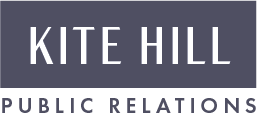Over the last decade, brands have increasingly used their platforms to take stronger stances on social and political issues. This could be seen throughout Pride Month as brands rolled out rainbow-colored advertising, Pride-inspired slogans, and LGBTQIA+ spotlights on social media. Though the fun of these branding moves is a great way to celebrate the month, it is important to reflect on how and why brands should work to include this community within their initiatives in bigger and more impactful ways year-round.
A study done by the U.S. Chamber of Commerce Foundation found that 91% of Fortune 500 companies include sexual orientation in their nondiscrimination policies, and 83% include gender identity as well. Prioritizing the LGBTQIA+ community within policies, procedures, and branding increases diversity and inclusion which leads to better talent, better retention, increased employee engagement, and ultimately greater company success. According to the LGBT Diversity Show Me the Business Case study, the US economy could save $9 billion annually if organizations more effectively implemented diversity and inclusion policies for LGBT staff. It is clear to see that these initiatives promote an inclusive company culture which snowballs into creating successful, diverse companies.
During Pride Month, brands and companies switch their avatars to Pride flags and create posts in solidarity with the movement, but it is important to consider how to further develop and implement meaningful, tangible initiatives. Hiring individuals from different backgrounds to maintain diversity isn't sustainable without a culture of inclusion that truly welcomes all individuals. Some things a company can do to implement meaningful LGBTQIA+ initiatives are highlighting pro-LGBTQIA+ and pro-inclusion company policies and attitudes, engaging employee resource groups and employees in the recruiting process, setting flexible work options, integrating bias training and encouraging pronoun implementation. A friendly LGBTQIA+ workplace offers employees the necessary tools to not only do their job well but also makes them feel safe, comfortable, accepted and valued.
There are a few technology companies who have been paving the way in terms of establishing LGBTQIA+ initiatives in the workplace that stood out to our technology PR firm. IBM has an impressive history of fighting for LGBTQIA+ rights. Dating back to 1984, the company added sexual orientation to its non-discrimination policy, later providing Domestic Partner Benefits and adding “gender identity or expression” to its Equal Opportunity Policy. The company leverages a business development team to help retain and support diverse talent and inclusive benefits along with an LGBTQIA+ Council that actively works to end HIV discrimination within the workplace. Likewise, Adobe jump-started the “Adobe for All'' campaign which aims to encourage the company’s development and support of LGBTQIA+ initiatives. Adobe has been recognized as a “Best Place to Work'' for LGBTQIA+ Equality by the HRC with a score of 100 on its 2021 Corporate Equality Index. The success of these companies is largely dependent upon the policies implemented which promote inclusion and a celebration of diversity.
Here at Kite Hill PR, we work to create an inclusive company culture that nurtures diversity, amplifies LGBTQIA+ voices, and ultimately recognizes the importance of the LGBTQIA+ community within the workplace. Our agency makes it a priority to keep diversity top-of-mind within the hiring process. From encouraging employees to include pronouns within their email signatures to reimbursing employee purchases made at LGBTQIA+ owned shops during Pride Month, there is an overwhelming sense of safety and support within the company. From smaller gestures to larger structural policies, at Kite Hill PR we are actively taking LGTBTQIA+ initiatives into consideration for all business decisions. We hope to also encourage our clients to use this guidance to implement similar initiatives and long-term policies that will cultivate a culture of acceptance and growth looking forward.
-Liana Zamora, Account Associate; Kylee Kinnaird, Assistant Account Associate

